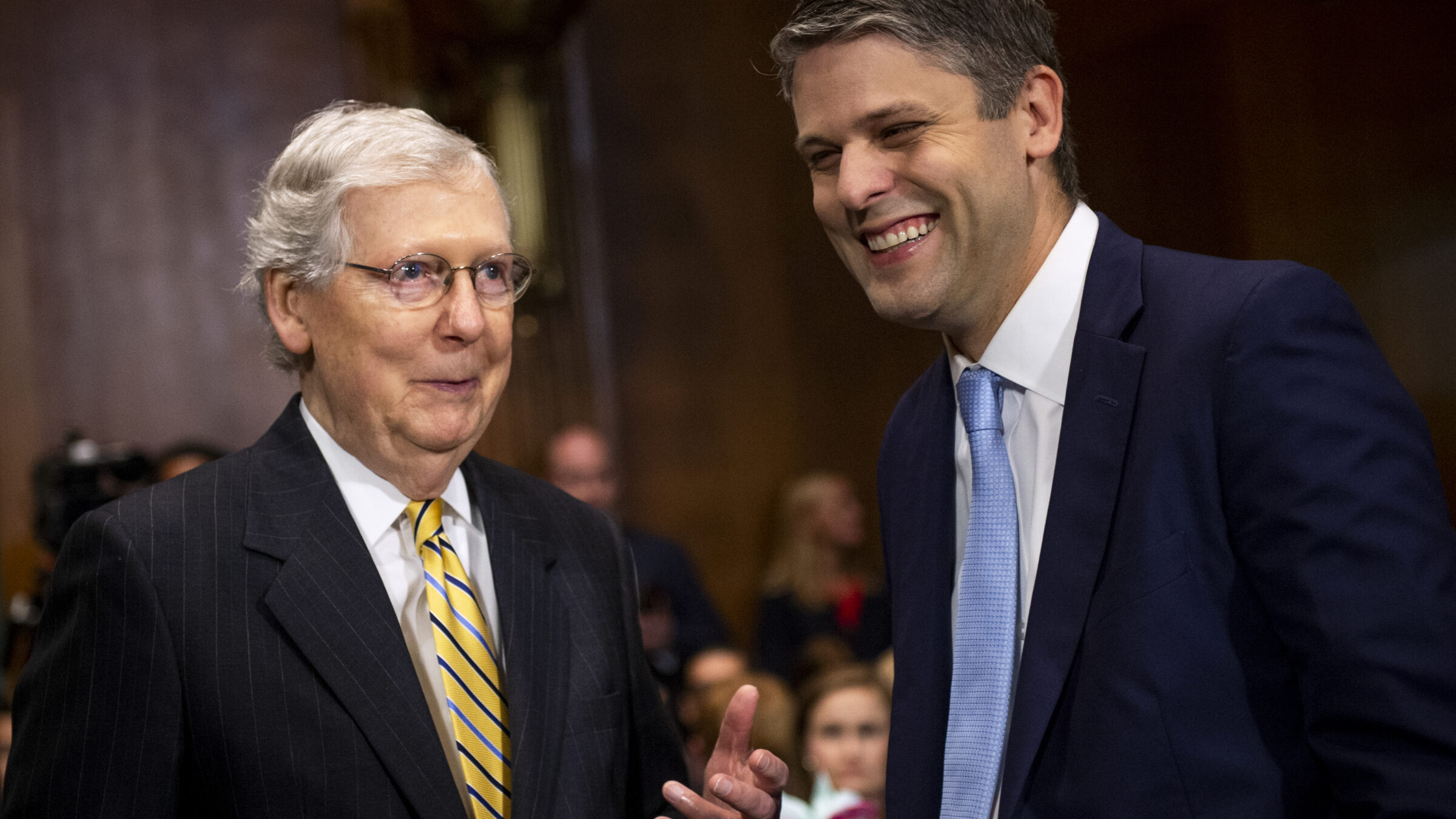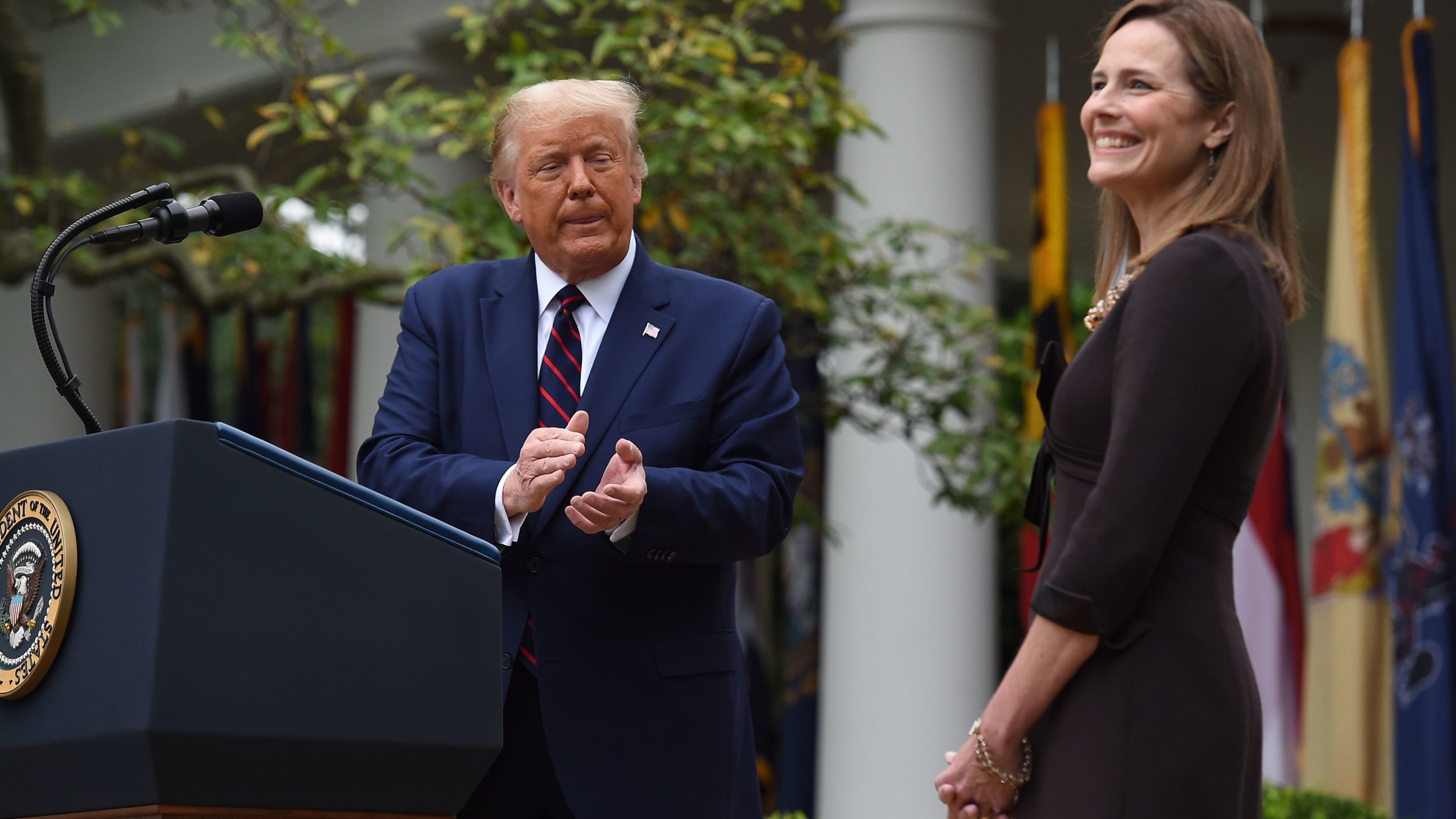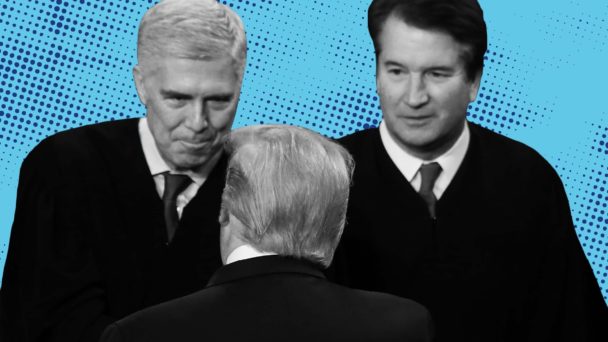One of the main reasons President Donald Trump was able to pack the federal courts with so many reactionary right-wing judges during his first term is that—thanks to unprecedented obstruction from Senate Republicans—Trump inherited over 100 judicial vacancies from President Barack Obama. In the years since, those Trump judges have been frontline fighters against abortion rights, gun control, and the administrative state, among other longtime Republican political hobbyhorses.
But because of President Joe Biden’s equally aggressive focus on appointing federal judges, Trump will start with less than half that number of vacancies this time around. And Senate Republicans are in an uproar because that number keeps dwindling, and not just because Senate Democrats are continuing to confirm Biden’s highly-qualified nominees during the lame duck period. In the wake of Trump’s reelection, two federal district court judges appointed by Democratic presidents have changed their minds and rescinded their conditional intentions to retire. Other judges that may not want Trump to pick their successors, including two federal appellate judges also appointed by Democratic presidents, may follow suit.
This would be a particularly bad look for incoming Senate Majority Leader John Thune, who struck a face-saving “deal” with Senate Democrats to keep these seats open for Trump after the President-elect publicly complained that Republicans weren’t doing enough to block the remainder of Biden’s nominees. Thune, who is already on shaky ground with Trump after he refused to indulge Trump’s stolen election conspiracy theories, won’t want to begin his tenure as Majority Leader with egg on his face if it turns out current Senate Majority Leader Chuck Schumer sold him and his Republican colleagues a bill of goods.
These retirement reversals also didn’t sit well with outgoing Senate Minority Leader Mitch McConnell, who is trying to use his waning relevance to publicly bully judges into letting Trump appoint their replacements. In a floor speech last week, McConnell accused the district judges—Algenon Marbley of Ohio and Max Cogburn of North Carolina—of playing politics with the judiciary. These judges “rolled the dice that that a Democrat could replace them and now … they’re changing their plans to keep a Republican from doing it,” he said. It didn’t seem to matter to McConnell that Ohio’s and North Carolina’s Republican Senators were already playing politics with the judiciary by using blue slips to prevent the current Democratic president and Senate majority from replacing these judges since they announced their retirements more than a year ago.
Undeterred, McConnell further warned other judges—the two appeals court judges in particular—that they would “face significant ethics complaints” if they “unretire because they don’t like who won the election,” citing Canons 2 and 5 of the Code of Conduct for U.S. Judges. These ethical obligations require federal judges to “act at all times in a manner that promotes public confidence in the integrity and impartiality of the judiciary” and prohibit “political activity” by judges, respectively.
It’s hard to imagine someone with less credibility than McConnell levying these objections. This is, after all, the same Mitch McConnell who refused to permit even a hearing on Obama’s nominee to replace the late Justice Antonin Scalia in early 2016 because it was an election year, yet rammed through the confirmation of Justice Amy Coney Barrett in 2020 just eight days before that year’s presidential election. It’s also the same McConnell who, in March 2020, “personally reached out to” conservative judges to encourage them to retire quickly so Trump could appoint their replacements. According to a New York Times report, McConnell “assured” the judges “that they would have a worthy successor if they gave up their seats soon.” Shortly after McConnell’s overtures became public, D.C. Circuit Judge Thomas Griffith, a Reagan appointee, announced his intent to retire in September; McConnell saw to it that his hand-picked protégé, Justin Walker, was appointed to Griffith’s seat.

McConnell and Walker, July 2019 (Photo by Caroline Brehman/CQ Roll Call)
Even after Republicans lost the Senate in 2020, McConnell has continued to meddle while in the minority. Consider the curious case of Kentucky District Judge Karen Caldwell. By 2022, Caldwell, appointed to the bench by George H.W. Bush in 1991 and described in reporting as a “rock-ribbed Republican,” was ready to retire. But according to a McConnell advisor, Caldwell “wasn’t going to give Biden a free shot at appointing someone” to replace her. So, McConnell got Caldwell to agree to retire on the condition that Biden would appoint a conservative in her stead. And McConnell had just the conservative in mind: anti-abortion lawyer Chad Meredith.
Why Biden would ever agree to this swap remains a mystery, but he was bailed out when the Supreme Court stripped women of their right to bodily autonomy in Dobbs v. Jackson Women’s Health Organization the very morning Meredith’s nomination was set to be announced. The White House pulled the nomination, but word of it leaked a few days later and intense backlash from Democrats scuttled the deal. Caldwell subsequently unretired and remains in active service, without any threat of an ethics investigation hanging over her.
McConnell is hardly a lone wolf here. During the first Trump administration, Politico reported that lawyers from the White House counsel’s office reached out to Seventh Circuit Judge Michael Kanne to suggest he retire. And to sweeten the deal, the White House dangled Kanne’s former clerk, Indiana Solicitor General Tom Fisher, as his proposed replacement.
On the basis of that agreement, Kanne submitted a conditional intent to retire. But Vice President Mike Pence, a former governor of Indiana, blocked Fisher’s nomination. Why? As Indiana’s Solicitor General, Fisher had defended Pence’s controversial policies in court, and Pence, according to Politico, “feared [Fisher’s] nomination would dredge up events and information politically damaging” to the Vice President. When Kanne learned that Fisher’s nomination had fallen through, he about-faced and remained in active service.
Even without pressure from the White House or senators, there’s nothing novel about judges taking the political climate into account when deciding whether to retire. Two recent studies confirm this. One study by Professor Xiao Wang concluded that although judges appointed by both parties retire for politically strategic reasons, such retirements are “far more pronounced among Republican appointees.” We can see it starting already, weeks before Trump is even set to take office: Just as Marbley and Cogburn, the Democratic appointees, decided to remain in active service after the election, North Carolina District Judge Frank Whitney—appointed by President George W. Bush—announced in late November that he would retire on December 1. Other conservatives will surely follow, now that they can be replaced by a president more to their liking.

(Photo by OLIVIER DOULIERY/AFP via Getty Images)
This isn’t even the first time a judge has changed their mind about retiring in response to election results. As McConnell acknowledged in his speech, a Democratic-appointed judge did so after George W. Bush was reelected in 2004, and a Republican-appointed judge did so after Barack Obama’s election in 2008. Contrary to McConnell’s assertion that these decisions are “unprecedented,” there’s quite a bit of precedent supporting them.
But even if we accept that these decisions are unprecedented, these are unprecedented times. Trump—now a convicted felon himself—is wasting no time packing his administration with other convicted criminals. And if the Senate won’t do Trump’s bidding and confirm his fellow felons, Trump has threatened to bypass the Senate altogether by adjourning Congress and appointing his cronies during the recess. Why should anyone think his judicial picks will be any better? Why would any judge be comfortable with someone like Mike Davis—who was giddy at the prospect of putting kids in cages and wants to be Trump’s Washington, D.C. “viceroy” because he “doesn’t like democracy”—having any influence over who is seated on the federal bench?
The data from a second recent judicial retirement study, this one from Professor Maya Sen and John Deschler, backs up the conclusion that judges from both parties recognize the threat that Trump in particular poses. The study found that ideology is a statistically significant factor in retirement decisions for Republican appointees. But it also found that some moderate Republican appointees appeared to “wait out” the first Trump administration and retire afterwards, believing that Biden (or anyone other than Trump) would be more likely “to appoint a replacement closer to” their comfort zone.
As federal judges—and the rest of the world—watch Trump become more unhinged by the day, McConnell cannot take the risk that other moderate Republican appointees will similarly hold out. He also knows that fewer Democratic appointees are likely to retire now that they’ve seen the kinds of far-right ideologues Trump is likely to appoint. Given that the decision whether and when to retire is entirely the prerogative of the judge, McConnell and his fellow Republicans can only resort to this bad-faith campaign to shame judges into letting Trump appoint their replacements.
But Trump 2.0 is shaping up to be an all-out assault on the Constitution and the rule of law, and federal judges (appointed by presidents of either party) are under no obligation to play along. To the contrary, refusing to do so is one of the best ways to promote public confidence in the judiciary.







